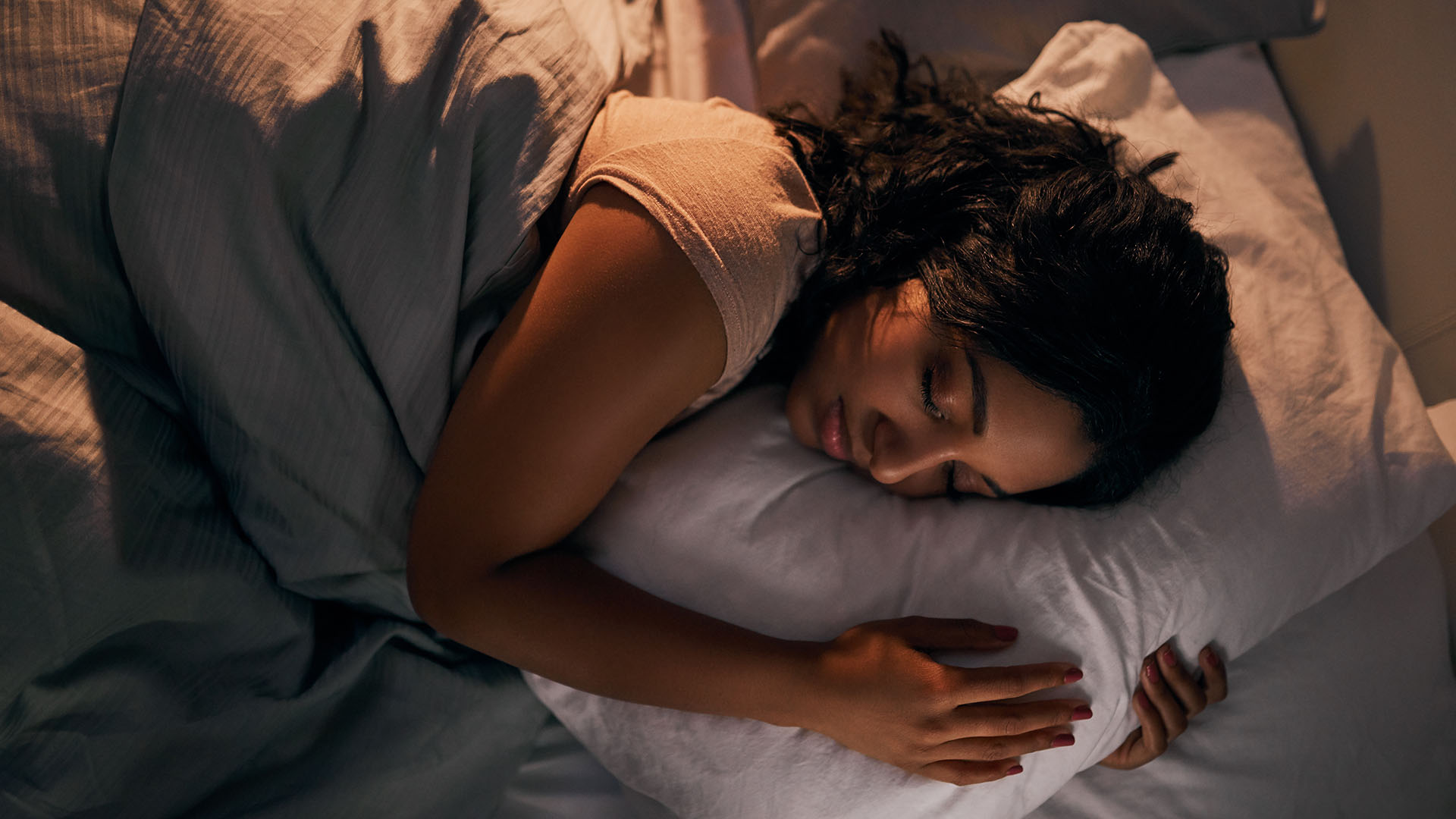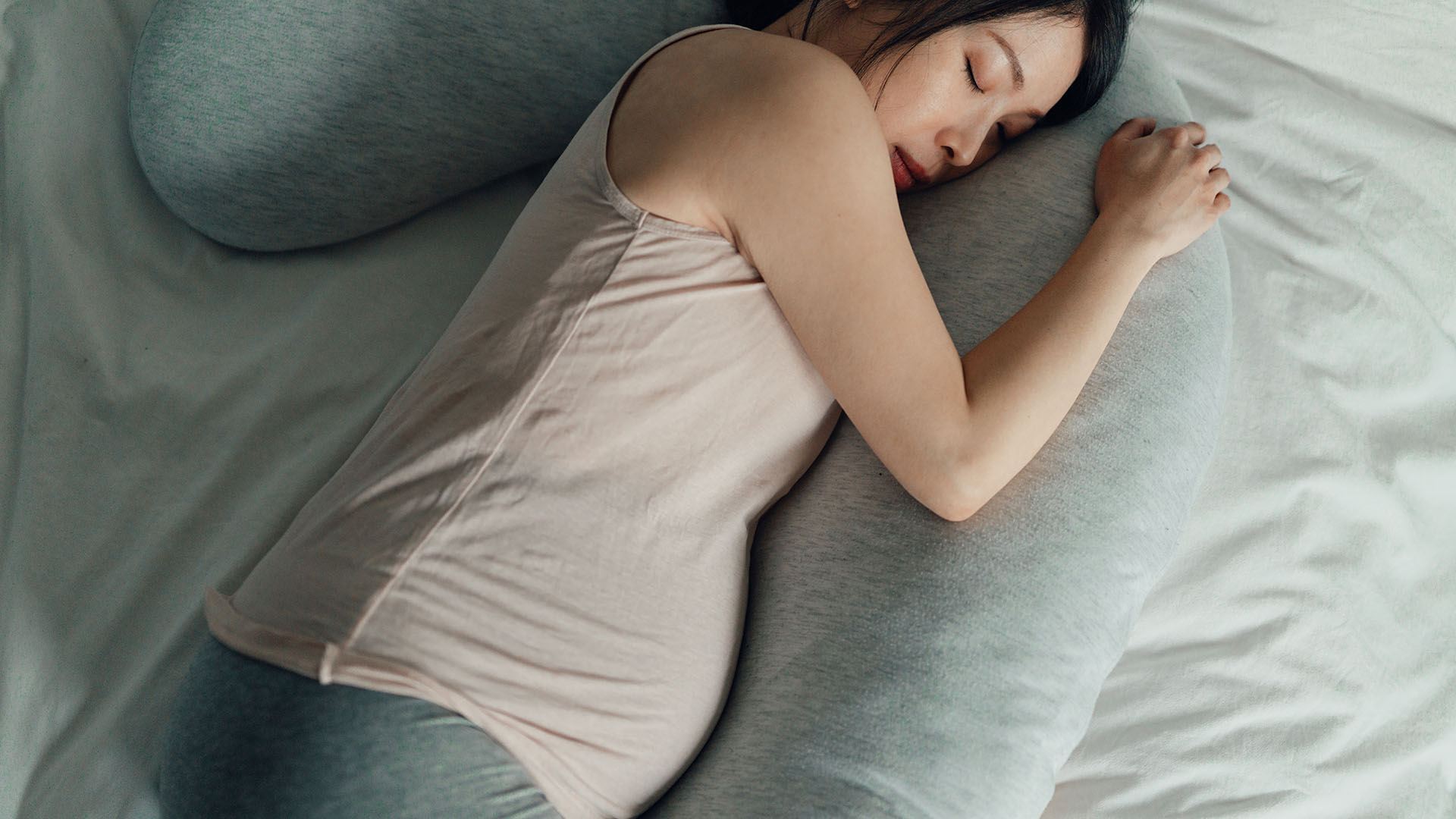What happens to your body when you sleep on your side?
Love snoozing on your side? We look at what it does to your body

Here at Tom’s Guide our expert editors are committed to bringing you the best news, reviews and guides to help you stay informed and ahead of the curve!
You are now subscribed
Your newsletter sign-up was successful
Want to add more newsletters?

Daily (Mon-Sun)
Tom's Guide Daily
Sign up to get the latest updates on all of your favorite content! From cutting-edge tech news and the hottest streaming buzz to unbeatable deals on the best products and in-depth reviews, we’ve got you covered.

Weekly on Thursday
Tom's AI Guide
Be AI savvy with your weekly newsletter summing up all the biggest AI news you need to know. Plus, analysis from our AI editor and tips on how to use the latest AI tools!

Weekly on Friday
Tom's iGuide
Unlock the vast world of Apple news straight to your inbox. With coverage on everything from exciting product launches to essential software updates, this is your go-to source for the latest updates on all the best Apple content.

Weekly on Monday
Tom's Streaming Guide
Our weekly newsletter is expertly crafted to immerse you in the world of streaming. Stay updated on the latest releases and our top recommendations across your favorite streaming platforms.
Join the club
Get full access to premium articles, exclusive features and a growing list of member rewards.
Cradling into a side sleeping position can look comfortable, but have you ever wondered what happens to your body when you sleep on your side? Is side sleeping good for your back, or could you be damaging your health as well as your body, if you decide to sleep in this position?
We tend to steer towards the position we naturally feel most comfortable in – whether that be side sleeping, sleeping on your stomach or sleeping on your back. But as most of us spend a third of every day sleeping, it's worth considering whether your position of choice is going to be good for you in the long run. In this article, we consulted experts to investigate what happens to your body when you sleep on your side, including the differences between left and right-side sleeping.
Whatever position you tend to lie in, it's also important to make sure you have the right bed setup to ensure correct spinal alignment. Our guide to the best mattress for side sleepers includes our top picks for this sleep style, while our general best mattress guide has recommendations for all sleepers.
Is sleeping on your side good for you?
Yes. Although the exact position makes a difference (including how your legs lie, and which side you're on), in general side sleeping has some great health benefits. It can help reduce back and joint pain, put a stop to snoring, and even help with digestion.
That's good news, because more than half of us (60 per cent) of us habitually sleep on our sides. "Sleeping on your side is the most common position. It also has a number of health benefits, including helping to reduce joint pain in your shoulders and hips," says Aimee Brame, consultant physician, Sleep Centre at London Bridge Hospital.
If you snore, or a partner does, sleeping on either side is a way to stop this, but how? "Sleeping on your side is the best way to stop snoring as it reduces airway compression," adds Brame.
If snoring isn't addressed at bedtime or starts to get worse, it could turn into something worse, including sleep apnoea. Brame reveals not all who snore develop sleep apnoea, but a significant proportion of those who have sleep apnoea, snore.

"In sleep apnea the upper airways become compressed overnight when sleeping because the muscles relax, and the airway becomes floppier. When this occurs, the airway become blocked temporarily and breathing stops. The patient then wakes up slightly and takes a deeper breath. They restart breathing but their sleep is very disturbed, and not restful," she explains.
Get instant access to breaking news, the hottest reviews, great deals and helpful tips.
The sleep disorder is often characterized by daytime sleepiness and severe snoring. But, is side sleeping enough to help the condition? "If you have sleep apnea, not only is side sleeping better but raising the head of the bed with cushions and sleeping with a straight back also reduce pressure on the airway."
While sleeping on your side, especially with your legs straight, can also help to keep the spine aligned – meaning you won't suffer from back pain (your bed also makes a difference; these are the best mattresses for back pain).
Is it better to sleep on your left or your right?
If you sleep on your side, you may be wondering if the left or right side is the best position to sleep in? According to Brame, the left side can help with acid reflux, which might make that the better choice. However, the differences between sides are minimal.
"It's better for digestion as our stomach is found on the left side. Studies have shown that reflux is worse when sleeping on the left side. Although digestion slows down when we sleep, this process continues to work throughout the night," she explains. However, if you naturally prefer your right side, Brame adds that comfort is more important.
What are the downsides of side sleeping?
Sleeping on your side can help with back pain, but it could agitate shoulders, as we tend to pick a side and stick with it. If you sleep on one side and start to experience pain in the shoulder, try and elevate your head more so you're not resting directly on your shoulder (look at the higher loft options in our best pillow guide) – or switch sides every couple of evenings.
Why is side sleeping good for pregnant women?
Sleeping on your side can be the healthiest position for people who are pregnant – but why is it more beneficial than sleeping on your back? Brame explains: "Sleeping on your side takes the weight of the baby off the large veins in the back of the tummy, this allows blood to circulate normally. This maintains the blood flow to the placenta which provides food and oxygen to the baby, allowing it to grow."
Sleeping on your side in the third trimester can also reduce the risk of stillbirth (more info here), as well as pre-eclampsia, a condition that causes high blood pressure in pregnant women.
"Side sleeping is also helpful for pregnancy-related hip and back pain. Again, a pillow between the knees can relieve lower back and pelvic discomfort," adds Brame.

How can you train yourself to sleep on your side?
We all naturally choose a sleeping position as it feels comfortable to us, however, if you want to try sleeping on your side, if another sleeping position isn't benefiting you, there are ways to train your body.
Try to make a conscious decision to start on the side you feel most comfortable in, try it for at least two weeks, before you decide if it's right for you. While Brame offers a quick tip: "Put a pillow behind your back if you tend to flip onto your back throughout the night and snore or if you struggle with sleep apnoea. Try this technique in reverse by putting a pillow next to your chest if you find yourself rolling onto your front."
The pillow will then stop you from moving and your body will naturally get used to the idea of sleeping on your side.
What's the best position to sleep in?
We've already clarified that sleeping on your side can be very beneficial for your body, but what if you typically lie on your stomach or on your back?
As well as your side sleeping, when you sleep on your back, Brame says it "supports and takes the pressure off your spine, which allows your muscles and joints to relax completely." However, sleeping on your back can induce snoring and for some, it can be uncomfortable.
Sleeping on your stomach is the least healthy sleeping position as it can put a strain on your neck and back. As your neck is rested to one side while sleeping on your stomach, you may find you wake up with an ache in your neck, while the back's natural curve will be out of alignment, so it could result in a bad back after a couple of years sleeping in this way.

Dr Aimée Brame is a Consultant Physician who has completed specialist training in Respiratory, General Medicine and Intensive Care Medicine. She specialises in pulmonary vascular disease and pulmonary hypertension. She is currently involved in a number of clinical studies investigating changes in haemodynamics in a range of clinical conditions. She has authored several book chapters and has been published in a number of peer reviewed journals. Her special interests include breathlessness and long COVID.

Sarah is a freelance writer who has been published across titles including Woman & Home, The Independent, and the BBC. Sarah covers a variety of subjects, including health and wellness. For Tom's Guide Sarah often writes about sleep health and hygiene, and interviews leading sleep experts about common issues such as insomnia and sleep deprivation.
 Club Benefits
Club Benefits










